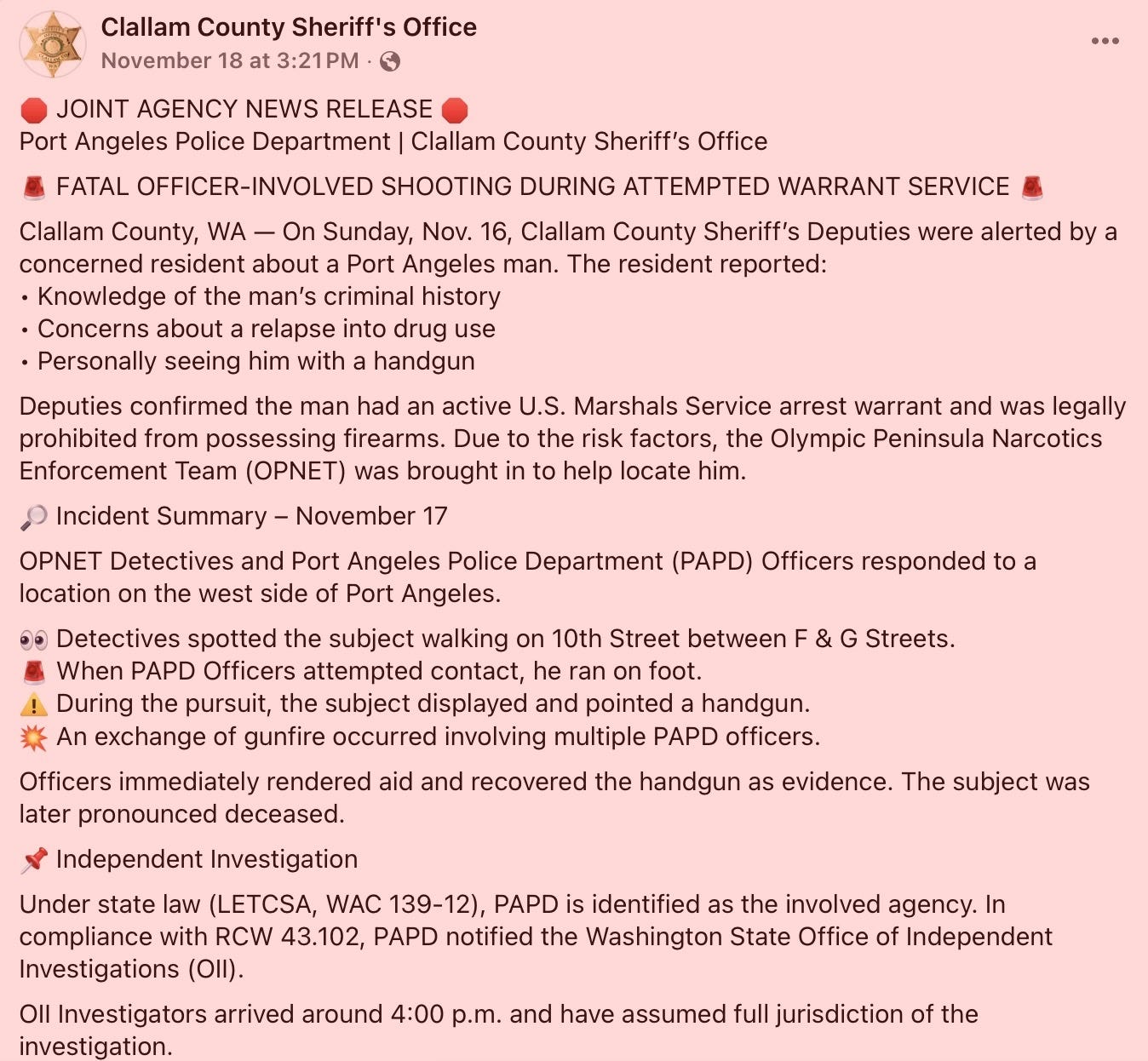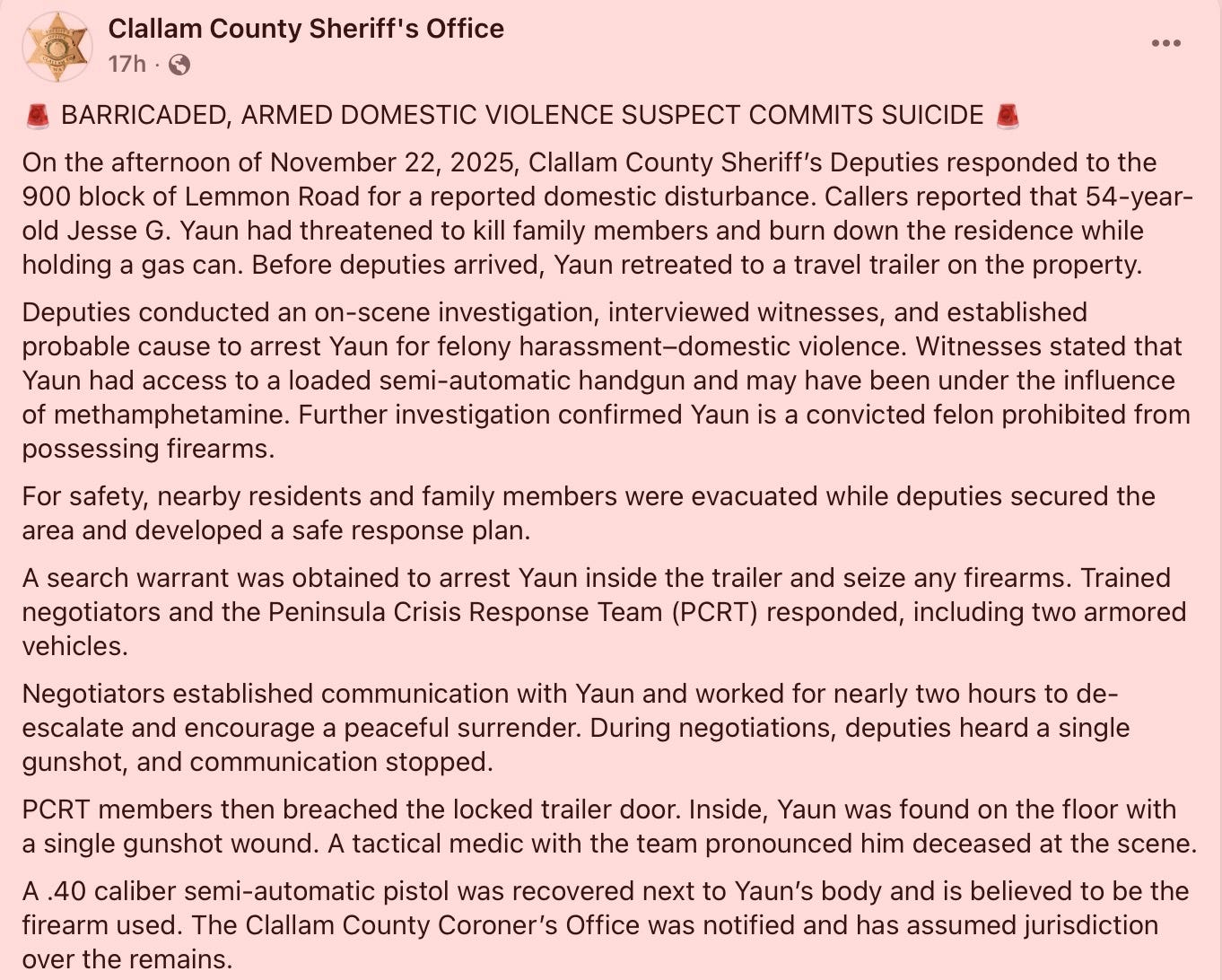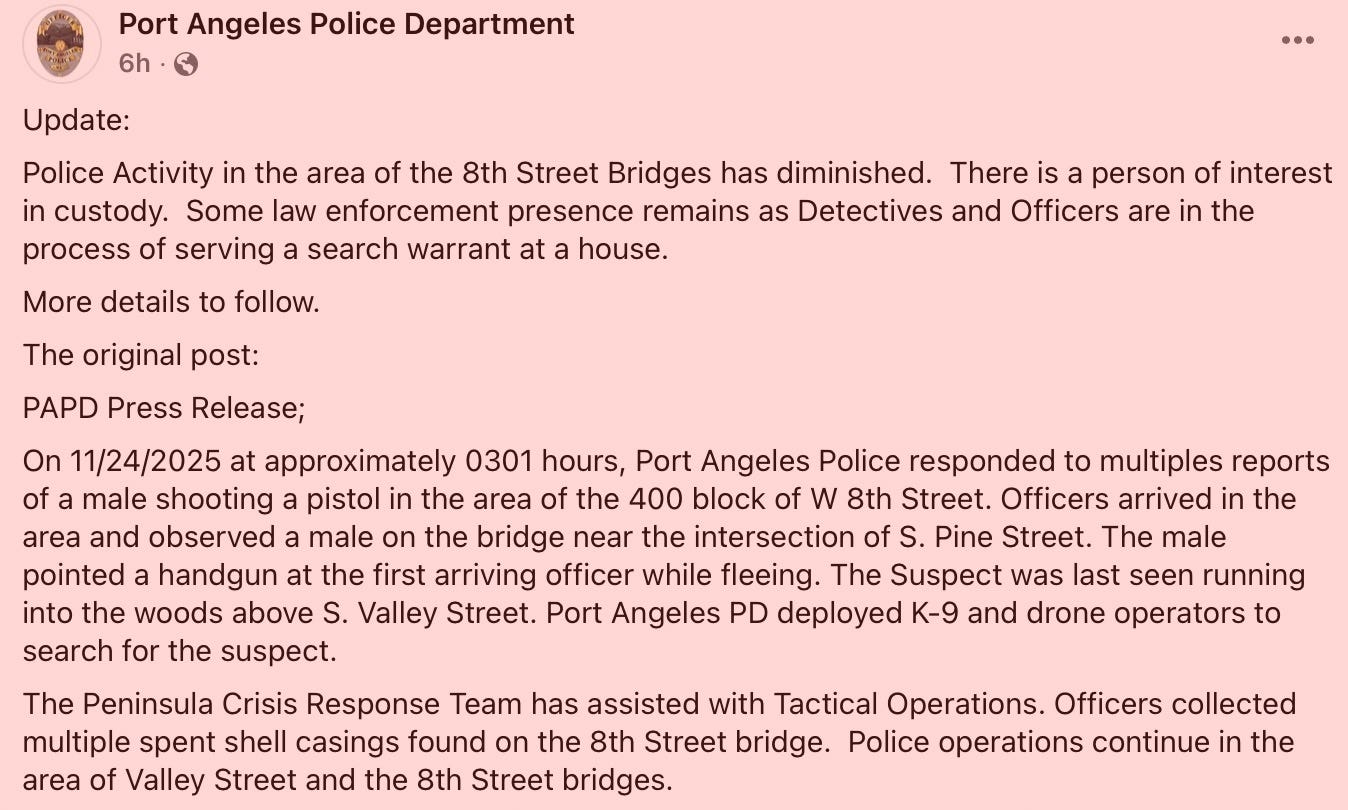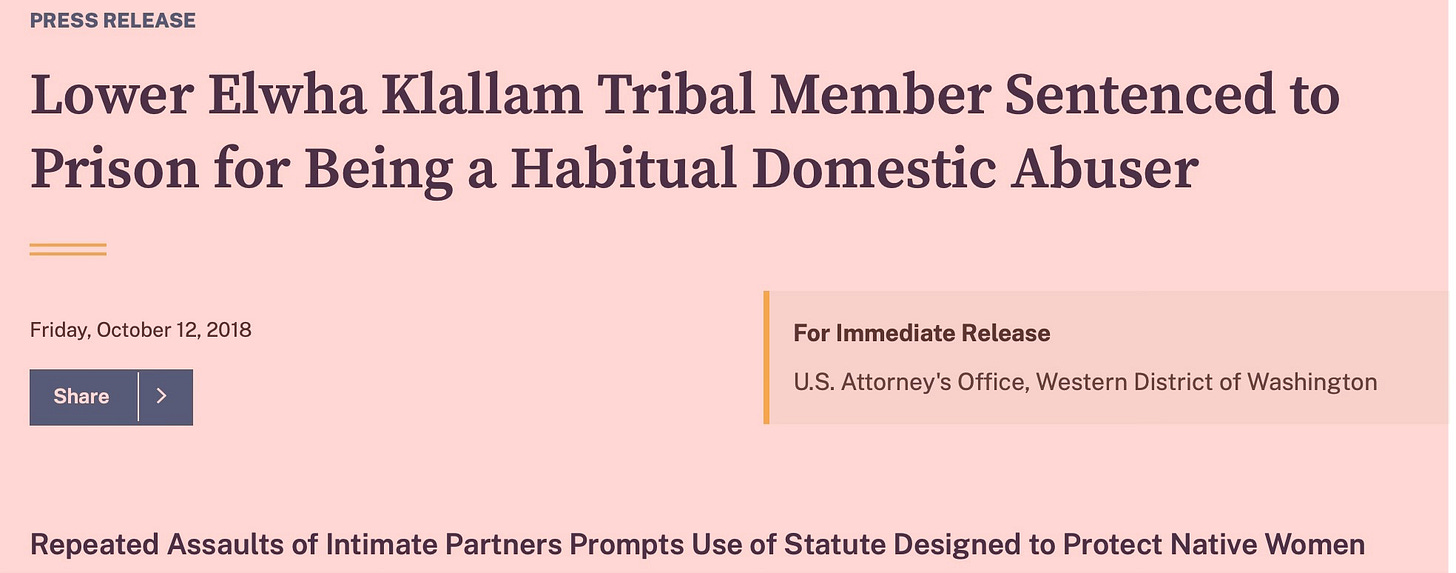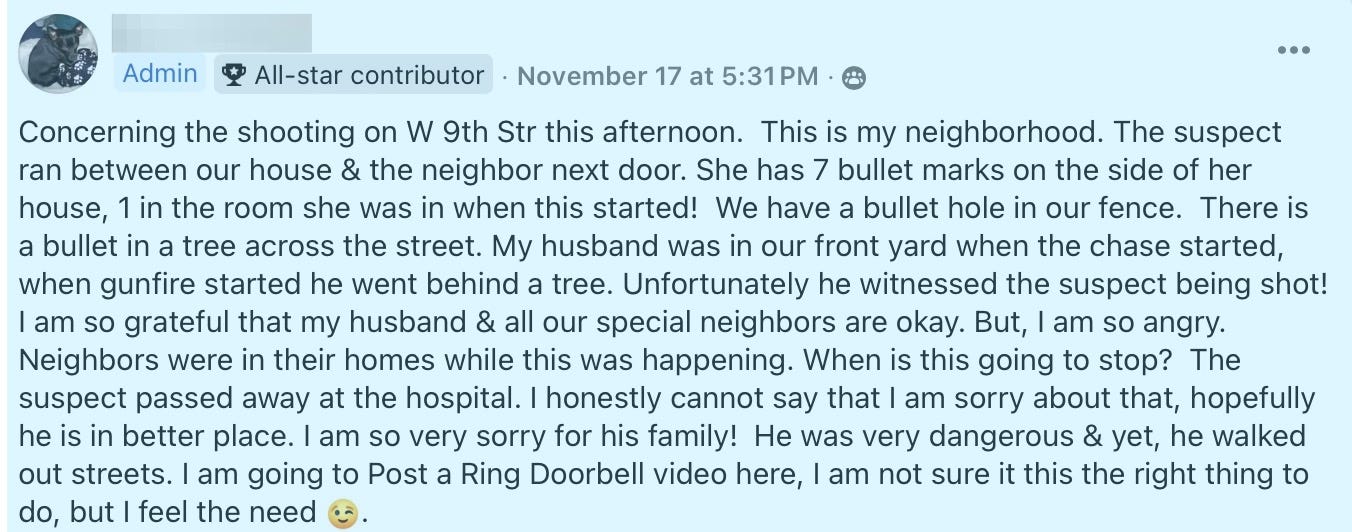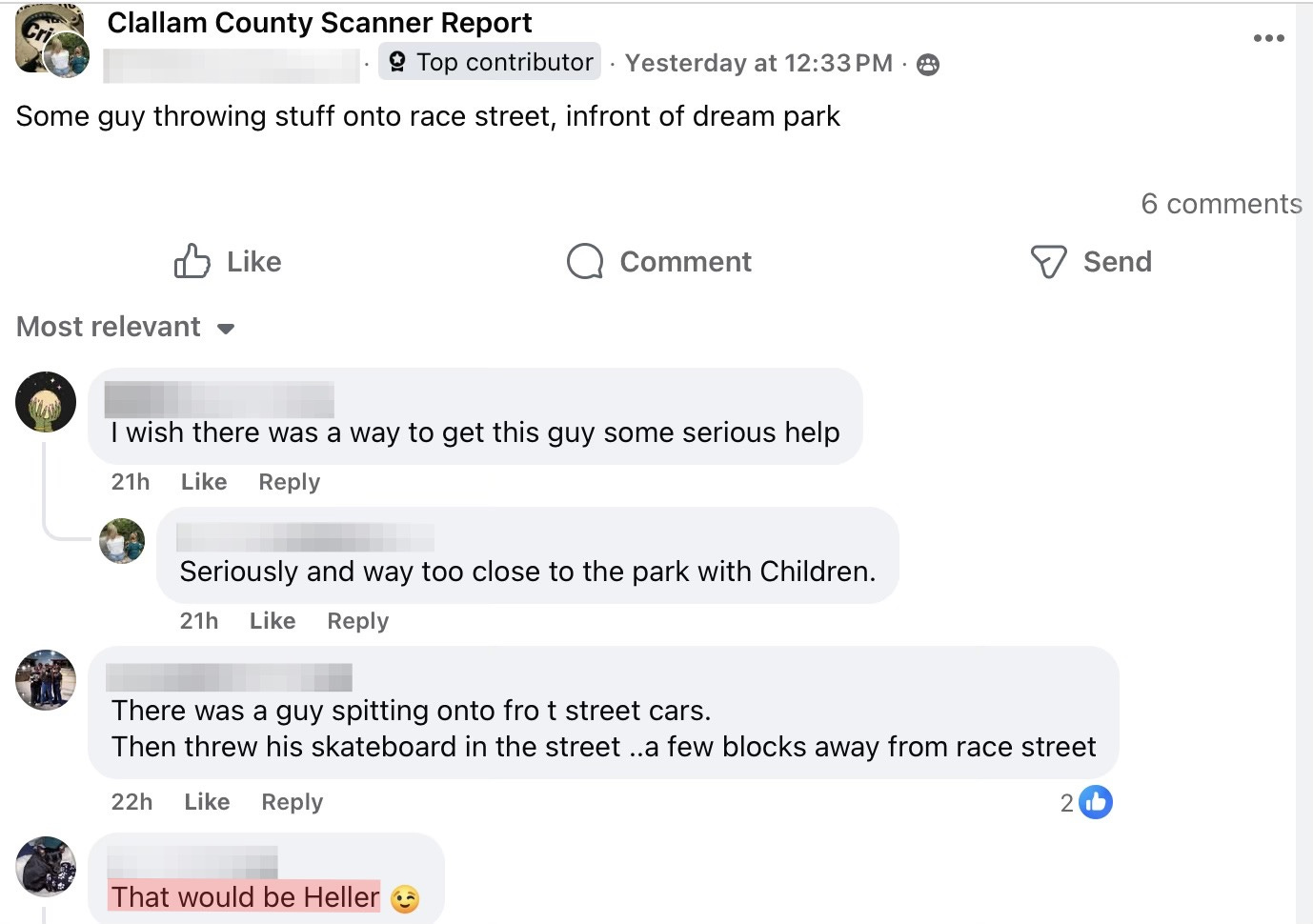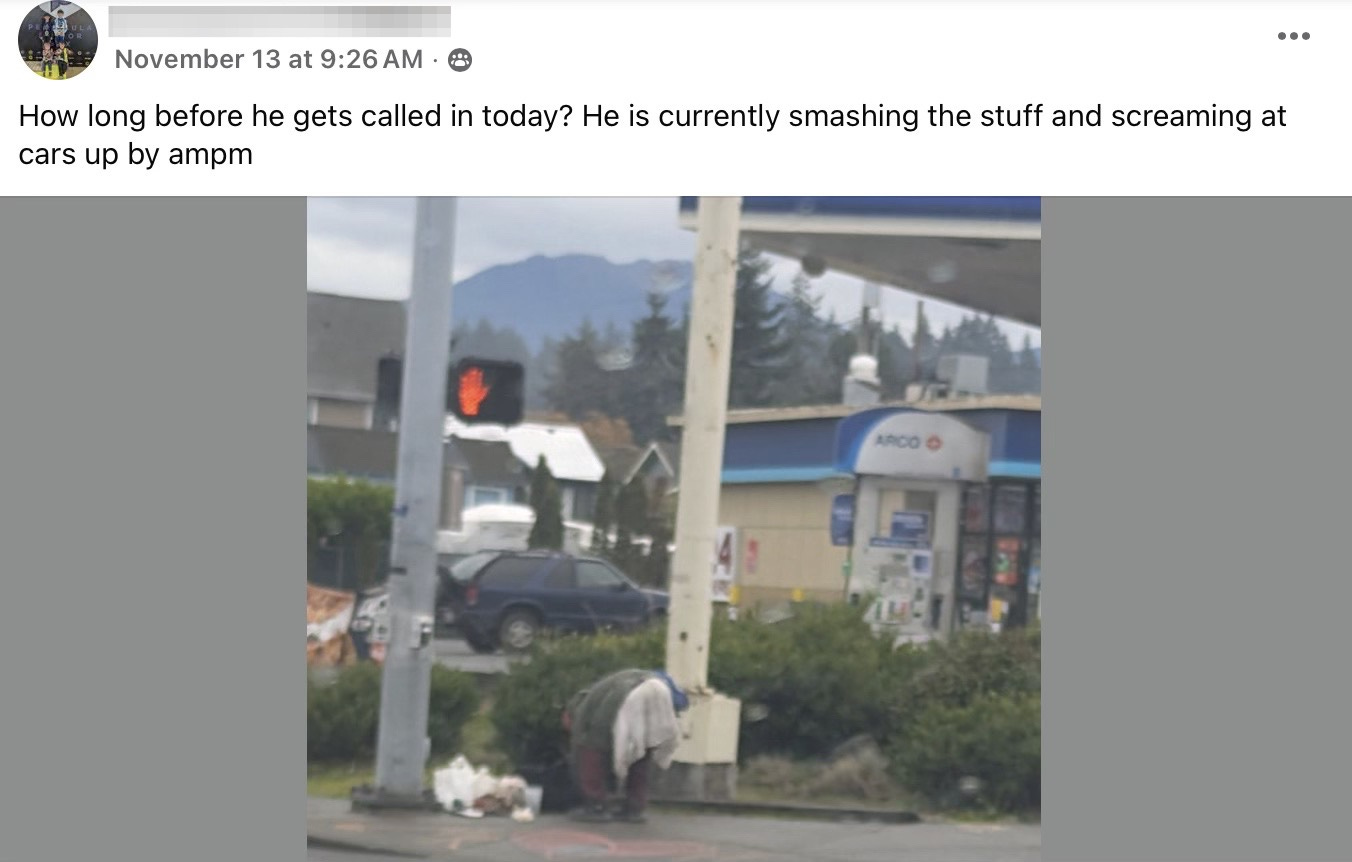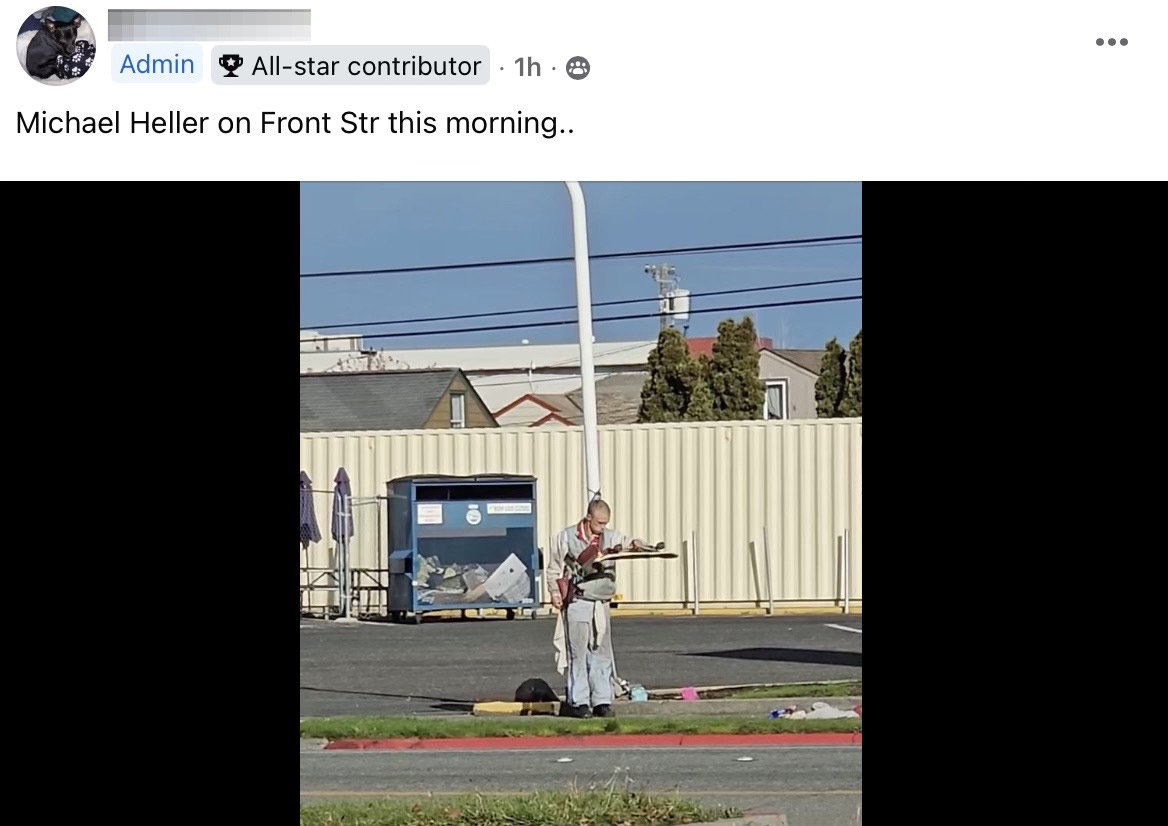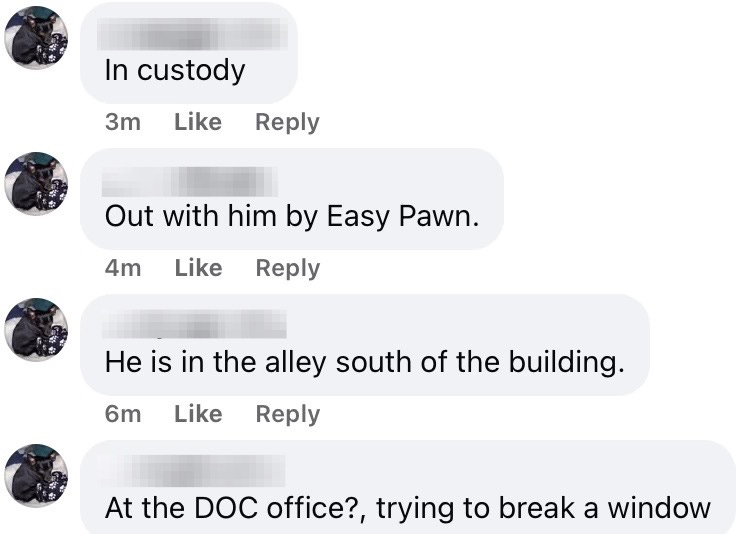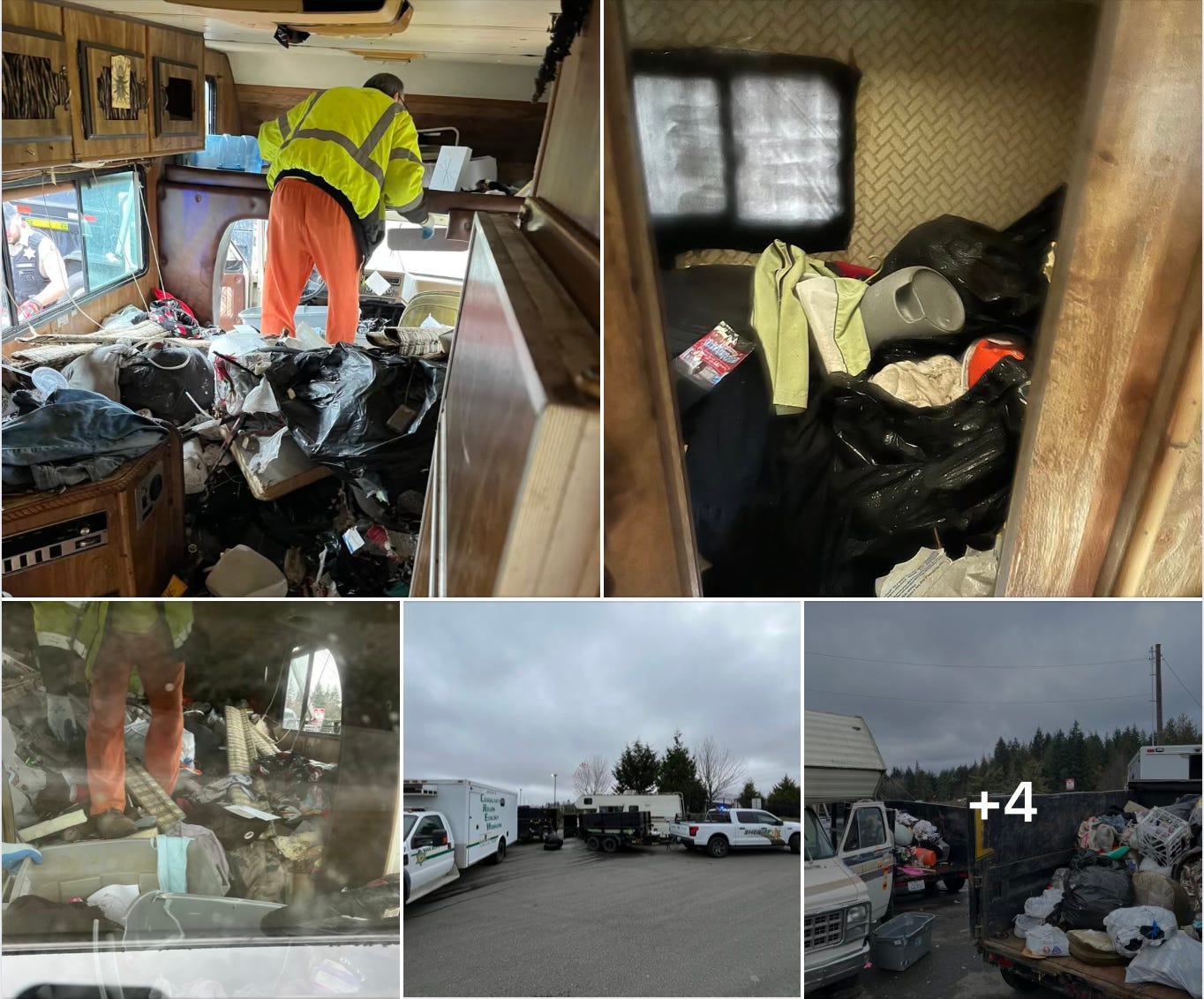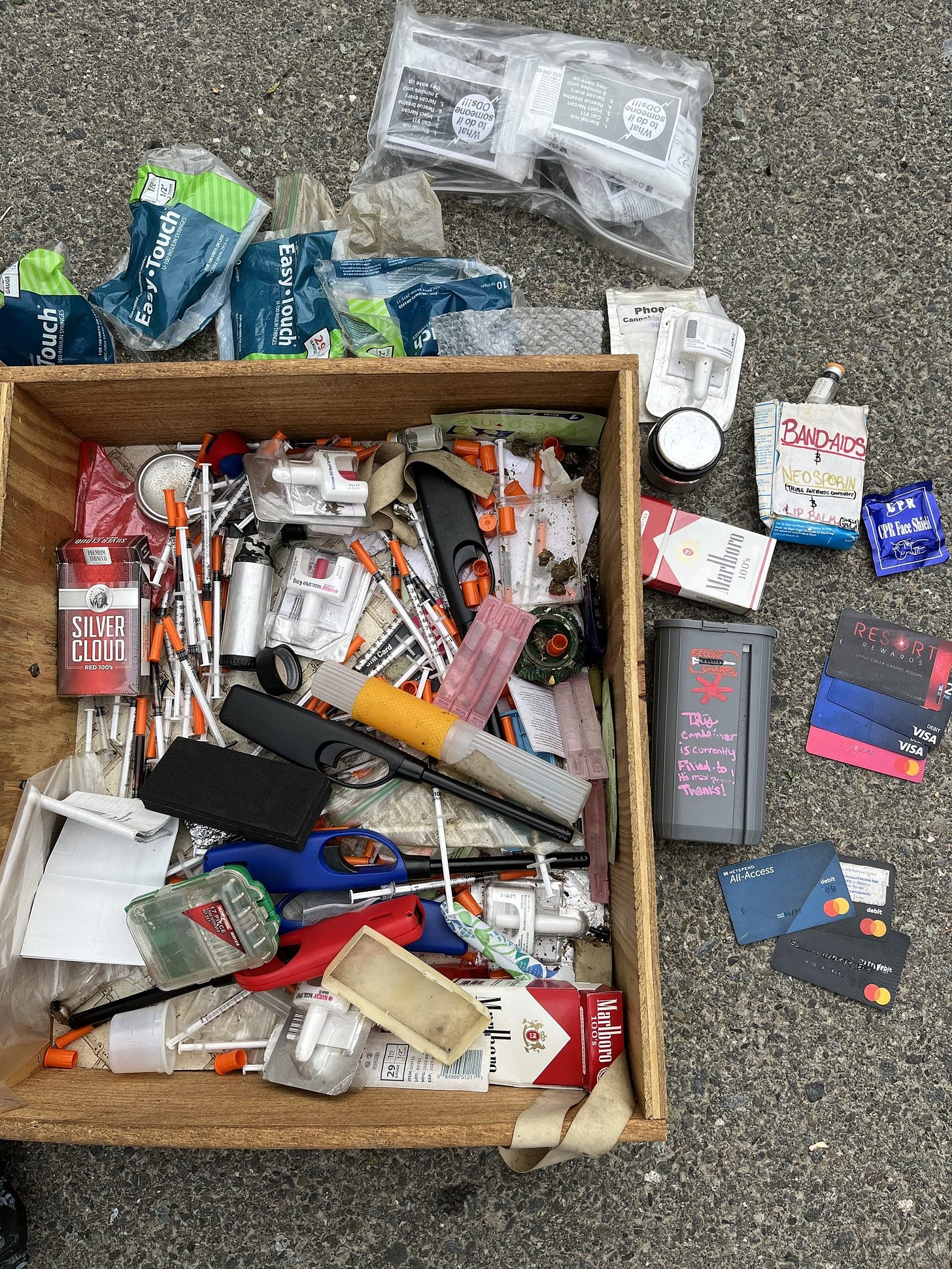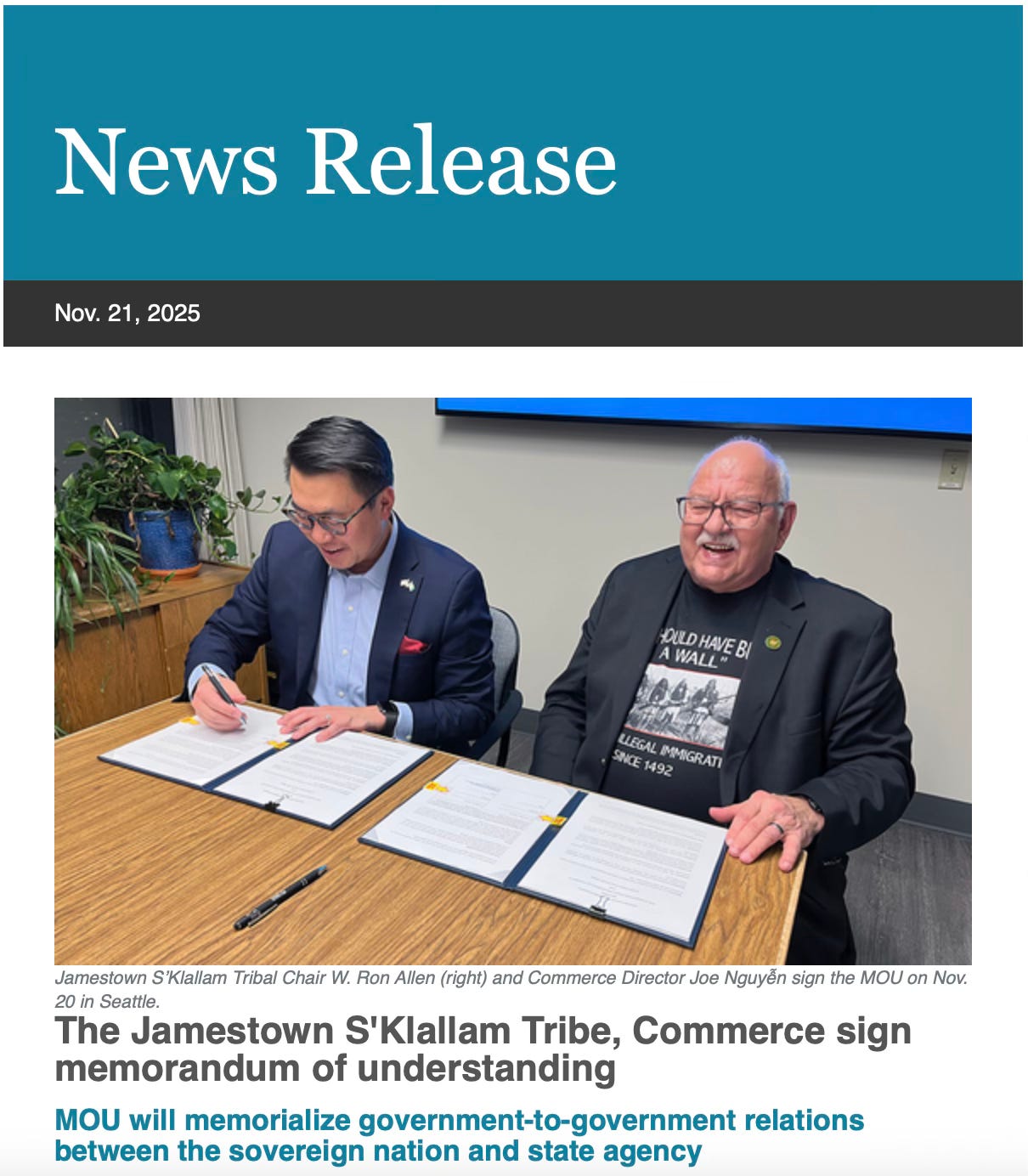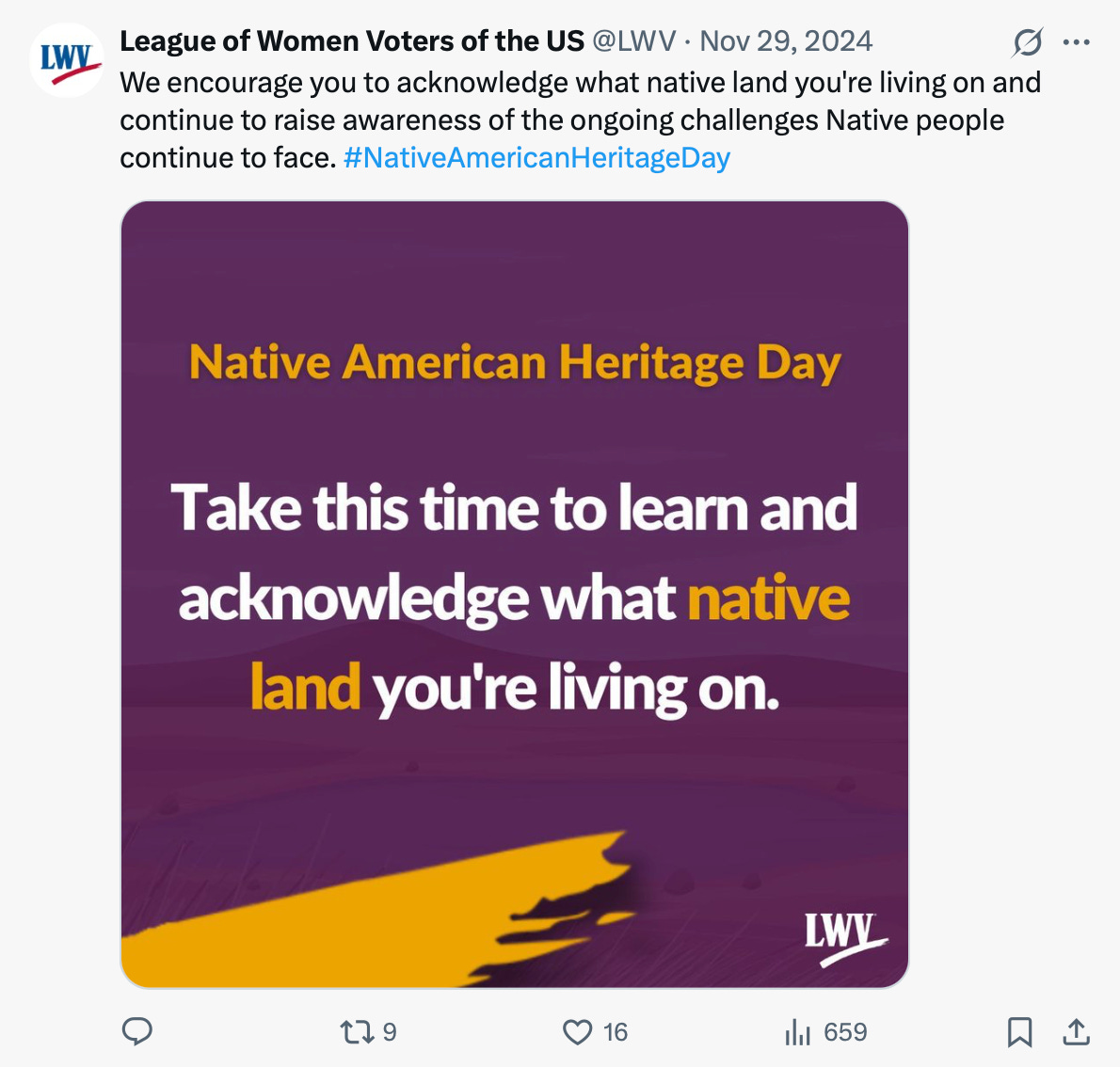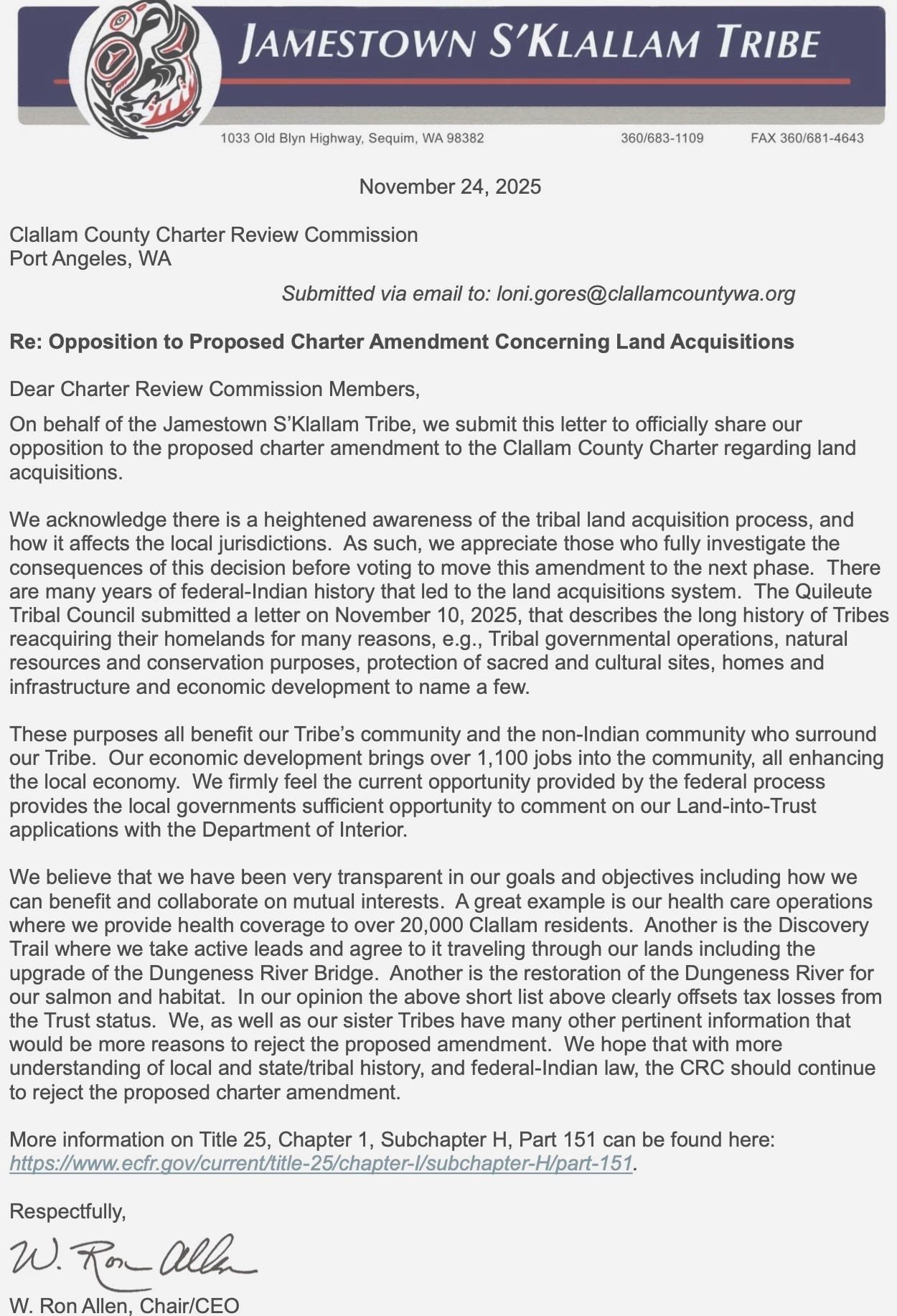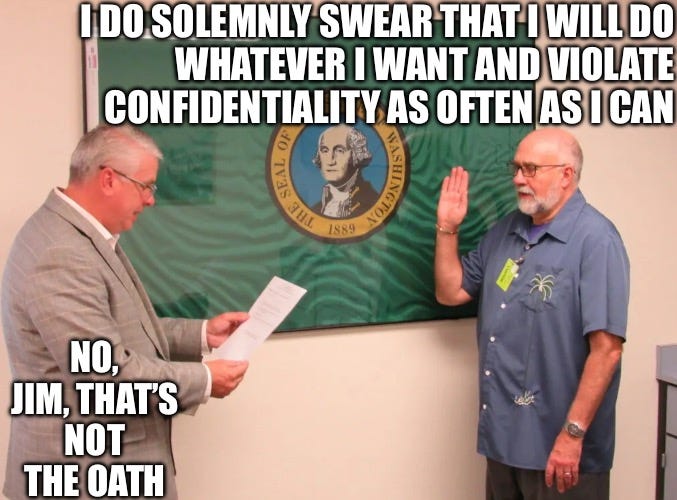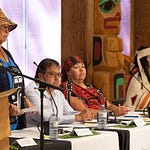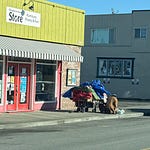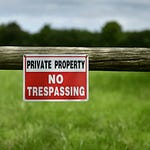Over just nine days, Clallam County has seen an officer-involved shooting, a barricaded armed felon dying by suicide, and a gunman fleeing through a residential neighborhood. These are not big-city headlines—they’re our daily reality. While public safety agencies struggle with historically low staffing and a county culture permissive toward drugs and repeat offenders, “leaders” continue prioritizing political symbolism, tribal lobbying, and special interests over basic public safety. Follow the violence, policy failures, government contradictions, and emerging opportunities shaping Clallam County right now.
A County Under Siege
Clallam County isn’t Chicago or Seattle—but over the past nine days, you wouldn’t know the difference. A fatal officer-involved shooting. A barricaded domestic violence suspect commits suicide while armored vehicles wait outside. A gunman running through a Port Angeles neighborhood, firing rounds into the air.
This is what happens when Washington ranks dead last in law enforcement per capita—and when Clallam County doubles down on policies that hand out crack pipes, foil, and “harm reduction” kits while offering almost nothing in the way of treatment, accountability, or deterrence. Permissiveness invites drug activity; drug activity fuels mental illness, trafficking, and violent crime. We are not witnessing a surprise—we are experiencing the predictable result.
Three major gun incidents. Nine days. One county.
How much more evidence do policymakers need before admitting that a permissive drug culture, chronically understaffed law enforcement, and a revolving door for repeat offenders have turned Clallam County into a magnet for instability and danger?
A Violent History Ignored
The suspected gunman killed on November 17 wasn’t an unknown name. Matthew Tyler Charles, 39, has been on law enforcement radar for over a decade.
Federal prosecutors labeled him a habitual domestic abuser with a long record of assaulting intimate partners. In 2018, he was sentenced to five years in federal prison after surveillance video showed him violently attacking a woman in the Lower Elwha Casino parking lot—only one crime in a long pattern of abuse dating back to 2004.
Yet here he was again in 2025, prohibited from owning guns, wanted by the U.S. Marshals Service, and still roaming Port Angeles with a firearm.
When habitual offenders cycle in and out of the system—protected by weak sentencing, low supervision, and high tolerance for criminal behavior—the community pays the price.
The Revolving Door Spins Again
Repeat offenders like Michael Heller continue to terrorize Port Angeles, repeatedly appearing in scanner traffic reported by concerned residents. Nothing about this is new—CC Watchdog’s “Five Years of Chaos” documented his long footprint on the community.
But Heller isn’t alone.
Hector Olivarria-Garcia, recently exposed in another CC Watchdog report for using an alias while incarcerated, was released—and immediately reappeared on the scanner with a new warrant out of Tumwater. His criminal history spans King, Thurston, and Grays Harbor Counties.
This is what happens when Clallam County arrests people but doesn’t hold them.
When consequences are optional, crime becomes predictable.
Harm Reduction’s Shadow: An RV of Needles
The Sheriff’s Office C.R.E.W. team recently cleaned out an abandoned RV so filled with garbage that it had essentially become a biohazard exhibit. Inside, they found:
3,000 pounds of garbage
Rotten food
Mountains of clothing and trash
Over 1,000 needles, many pre-loaded
EBT and cash cards
The drawer full of needles—photographed and shared by the Sheriff—raises a fair question: Where did these thousands of needles come from? And more importantly: Did taxpayers purchase some of them through “harm reduction” programs?
This is the real-world result of policies that normalize addiction instead of reducing it.
When we hand out free equipment for drug use, we shouldn’t be shocked when abandoned RVs become needle warehouses—exactly the kind of environmental hazard officials claim harm reduction prevents.
Commerce Gives the Jamestown S’Klallam Tribe a New Fast Lane
The Washington State Department of Commerce just signed an MOU with the Jamestown S’Klallam Tribe promising reduced administrative barriers, “streamlined” funding access, and tailor-made grant processes.
Translation: It just became even easier for Jamestown to access Climate Commitment Act funding—the same hidden gas tax that has driven Washington’s fuel prices to the highest in the nation.
Meanwhile:
Olympic Medical Center is near insolvency
County roads need safety overhauls
The county threatens to cut public safety without new taxes
Why aren’t these institutions getting “streamlined funding pathways”? Why does a tribe that publicly reports over $100 million in annual revenue—for 209 local members—need even more preferential access to taxpayer-funded programs?
This is not equity. This is favoritism, and it reduces transparency about how our money is used.
Coast Guard Training Center: Port Angeles Is a Natural Fit
The U.S. Coast Guard is evaluating locations for a major new national training center capable of housing 1,200 recruits and supporting up to 15,000 additional personnel across the service.
Port Angeles should be at the top of the list.
We already host a major Coast Guard base, have strategic deep-water access, and sit on the edge of the Pacific—a perfect place for maritime training. An installation of this scale could transform our economy, bringing jobs, construction, federal investment, and long-term stability to a region hungry for opportunity.
If local officials don’t aggressively pursue this, they’re missing the biggest economic catalyst in a generation.
The League of Women Voters: “Nonpartisan” in Name Only
The “nonpartisan” League of Women Voters of the US posted a reminder for Native American Heritage Day, instructing residents to “acknowledge the native land you’re living on.”
Homeowners apparently need to be reminded that the property they bought, paid taxes on, and maintain is not really theirs—it’s “native land.”
Wisconsin LWV’s own Land Acknowledgement Guide goes further, promoting:
Advocacy on “specific issues” on behalf of tribes
Aligning LWV positions with tribal sovereignty efforts
Framing American settlement as “colonialism, genocide and trauma”
None of this is nonpartisan. Supporting the political aims of one sovereign nation is not neutral civic engagement—it’s activism.
When it comes to a “nonpartisan” organization officially recognized by Clallam County government, taxpayers deserve the truth from organizations that claim to represent everyone, not just one preferred constituency.
A Letter They Had Time to Write
Three months ago, the Board of County Commissioners sent a simple request to the Jamestown Tribe: Can we discuss ways you could help contribute to the tax base?
No response.
But yesterday, the Tribe found plenty of time to send a detailed letter to the Charter Review Commission—opposing a proposed amendment that would increase transparency around tribal land acquisitions and their impacts on tax rolls.
When the county asks about tax fairness: silence. When the Tribe worries about federal scrutiny of tax-exempt land expansion: instant engagement.
The letter praises job creation and collaboration while ignoring the core issue—the county loses revenue every time land goes into trust, and local taxpayers make up the difference. Claiming that trail maintenance and salmon restoration “offset” lost revenue is an argument only someone not paying taxes could make.
If transparency is not harmful, why oppose it?
Commissioners’ Forum: Your One Shot This Month
Today is the Commissioners’ Forum—the public’s only real chance all month to ask questions and expect dialogue rather than silence.
Bring the tough questions:
Why do commissioners put political stickers on taxpayer-funded laptops?
Is the Culture Tax dead—or are special interests negotiating behind the scenes?
Is harm reduction actually reducing harm? For whom?
Why is public safety always threatened with cuts first?
They work for you. They should answer to you. Click here for instructions to attend in-person or online. And remember, Commissioner Mark Ozias wants you to feel empowered to ask questions.
A Challenge From Clallamity Jen
Local meme legend Clallamity Jen is launching a new podcast—and she wants your hard-hitting questions for CC Watchdog creator, me.
This isn’t about praise.
Ask the tough ones. Be sharp, critical, and unfiltered. Famed commenters “Powder Monkey,” “Matthew,” “Kevin”—this is your moment (and Clallamity Jen won’t tell me who the questions come from).
I won’t see the questions in advance, and nothing will be off limits (except haircare tips).
Send questions within the week to clallamityjen@gmail.com. The community will be listening.
And yes, Jim, even you can ask the “Boy with the Blog” a question.



